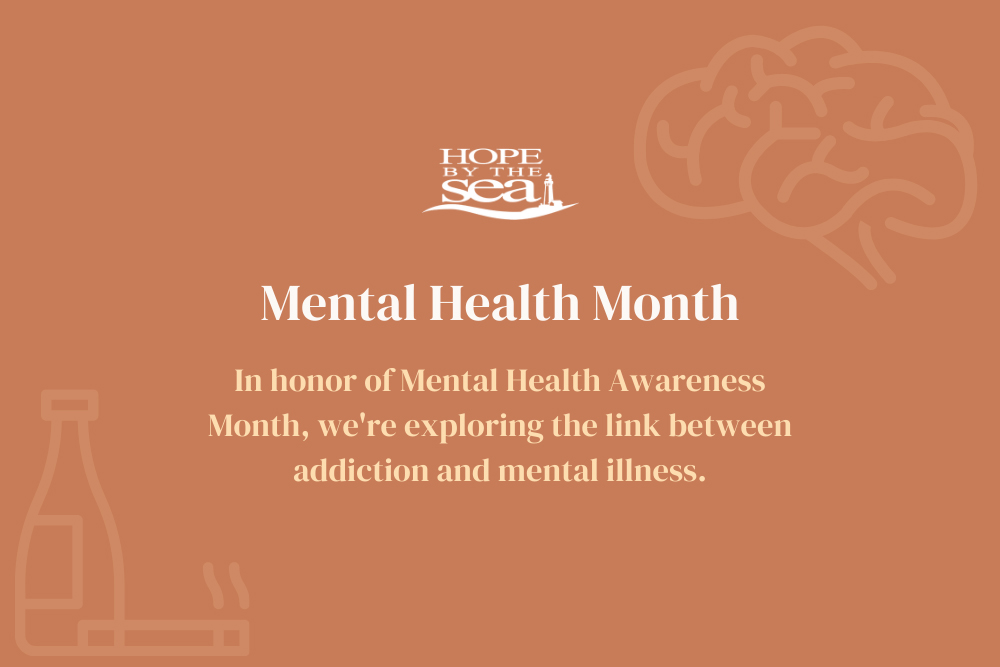Substance use disorders often go hand in hand with a closely related mental health problem. Successfully treating these combined issues, known as a dual diagnosis, requires addressing both conditions simultaneously. If you are living with co-occurring addiction and mental health problems, here’s what you should know about the link.
Understanding Your Dual Diagnosis
This Mental Health Month, it’s vital to recognize that a dual diagnosis is a common condition affecting millions of Americans from all walks of life. These challenges don’t happen because people make a conscious decision to develop emotional and behavioral problems. While genetic and environmental factors contribute to both parts of a co-occurring disorder, that doesn’t tell the whole story. We still need more research to identify why these issues so often develop alongside each other.
The inner turmoil caused by mental health issues such as PTSD, depression and anxiety can lead people to turn to alcohol or drugs to numb the pain and negativity. Substance use can also worsen existing mental illnesses or cause new ones. If you routinely self-medicate with drinking and drug use, you will likely experience anxiety or depression symptoms as you struggle to come to grips with how a worsening substance dependency is harming your well-being.
How to Recognize a Co-Occurring Disorder
Because of the complex, interconnected nature of substance misuse and co-occurring mental health disorders, the symptoms may vary widely among different people. For example, someone with a dual diagnosis of depression and alcohol abuse could have noticeably dissimilar behavior to someone who uses marijuana to manage anxiety. However, here are some general red flags that may indicate you have a dual diagnosis.
- If you are stressed or tense, is your first response to reach for alcohol or drugs?
- Do you feel irritable or on edge when you run out of your substance of use?
- Does mental illness or addiction run in your family?
- Have you ever tried to quit drinking or using, only to experience withdrawal symptoms?
- Do you only feel “normal” when you’re under the influence?
- Do you frequently worry about how your substance use and mental health are adversely affecting your life?
Make a Fresh Start Today
If mental health and substance abuse are adversely affecting you and your relationships, you can take back control by admitting you have a problem and asking for help. Treating a dual diagnosis can be challenging, but recovery is possible with our customized, patient-first approach. To learn more about how our family-owned California rehab facility and what makes Hope by the Sea an ideal environment for overcoming addiction and mental illness, connect with us today.

